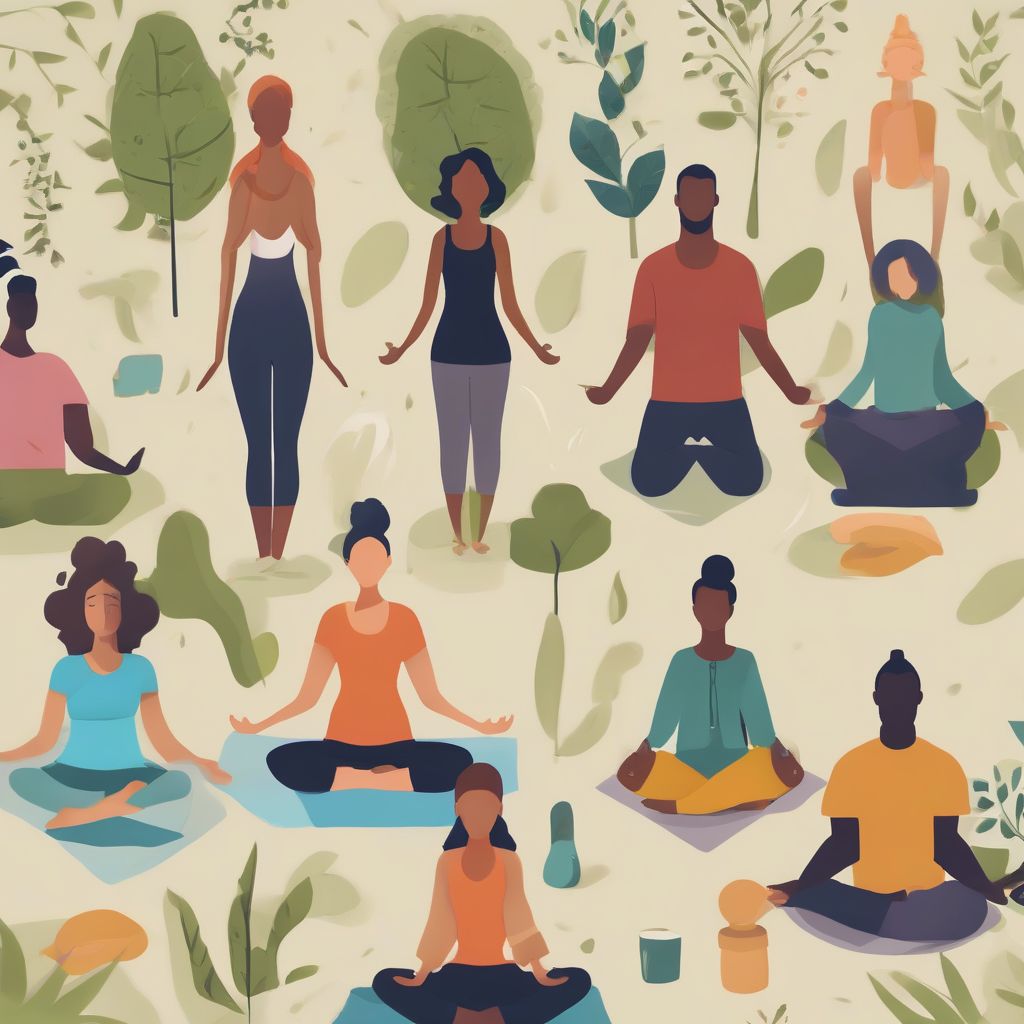Life can feel like a whirlwind sometimes, right? You’re juggling work, family, and a million other things, leaving you feeling stressed and overwhelmed. We all crave those moments of peace, where our minds can finally unwind. But how do you actually get there?
The answer lies in relaxation techniques. And no, we’re not talking about luxurious spa days (although those are nice too!). We’re talking about simple, practical strategies you can incorporate into your daily life to manage stress, improve your mood, and reclaim your inner peace.
Why Relaxation Techniques Matter for Your Mental Wellbeing
Before we dive into the “how-to,” let’s understand the “why.” When stress takes over, it triggers a cascade of physical and emotional responses. Your heart races, your muscles tense up, and you might experience difficulty sleeping, concentrating, or even just enjoying the simple things in life.
Relaxation techniques act like a reset button for your nervous system. By engaging in these practices, you can:
- Reduce Stress Hormones: Techniques like deep breathing help lower cortisol levels, the infamous “stress hormone.”
- Promote Relaxation: Relaxation techniques shift your body into a state of calmness, slowing your heart rate and easing muscle tension.
- Improve Sleep: Regular relaxation can lead to more restful sleep, which is essential for mental and physical recovery.
- Boost Mood: By reducing stress and anxiety, relaxation techniques pave the way for a more positive and balanced emotional state.
- Increase Focus: When your mind is calm and clear, you’re better equipped to concentrate, make decisions, and tackle daily tasks.
Discover Your Perfect Relaxation Techniques
Ready to find your calm? Here’s a look at some of the best relaxation techniques backed by science:
1. Deep Breathing: Your Pocket-Sized Stress Reliever
Deep breathing is like a mini-vacation for your mind and body. It’s simple, effective, and you can do it anytime, anywhere.
How to do it:
- Find a comfortable position.
- Close your eyes if you’d like.
- Inhale deeply through your nose, feeling your belly expand.
- Hold your breath for a moment.
- Exhale slowly through your mouth, letting go of any tension.
- Repeat for 5-10 minutes.
2. Mindfulness Meditation: Be Present, Feel at Peace
Mindfulness meditation is about paying attention to the present moment without judgment. It helps quiet racing thoughts and brings a sense of acceptance and peace.
How to do it:
- Find a quiet space.
- Focus on your breath, noticing the sensation of each inhale and exhale.
- As your mind wanders (and it will!), gently guide your attention back to your breath.
- Start with just a few minutes each day and gradually increase the duration.
3. Progressive Muscle Relaxation: Release Tension, Find Calm
This technique involves systematically tensing and relaxing different muscle groups in your body. It’s a great way to become aware of physical tension and learn to let go.
How to do it:
- Find a comfortable position.
- Starting with your toes, tense the muscles as tightly as you can for 5 seconds.
- Relax the muscles completely for 10 seconds, noticing the difference between tension and relaxation.
- Move to the next muscle group, working your way up your body.
4. Yoga and Tai Chi: Move Your Body, Calm Your Mind
These ancient practices combine gentle movements, deep breathing, and mindfulness, promoting both physical and mental well-being.
How to get started:
- Look for beginner-friendly classes in your area or online.
- Focus on your breath and the present moment as you move through the poses.
- Listen to your body and modify poses as needed.
5. Spending Time in Nature: Let Nature Soothe Your Soul
There’s something incredibly calming about being surrounded by nature. Whether it’s a walk in the park, a hike in the woods, or simply sitting by the ocean, nature has a way of melting away stress.
How to incorporate it:
- Aim for at least 30 minutes of outdoor time most days of the week.
- Engage your senses: notice the colors, sounds, and smells of your surroundings.
- Leave your phone behind or keep it on silent to minimize distractions.
Tips for Making Relaxation Techniques Work for You
- Consistency is Key: Just like any new habit, the key to experiencing the full benefits of relaxation techniques is to practice them regularly.
- Start Small: Don’t feel pressured to meditate for an hour on your first try. Begin with a few minutes each day and gradually increase the duration.
- Find What You Enjoy: Experiment with different techniques and find what resonates with you most. The best relaxation technique is the one you’ll stick with.
- Be Kind to Yourself: It’s normal for your mind to wander during meditation or for relaxation to feel challenging at first. Just keep practicing, and you’ll get there.
 Relaxation Techniques
Relaxation Techniques
From Stressed to Serene: Prioritize Your Mental Health
Finding effective relaxation techniques is like discovering a treasure chest of calm amidst the chaos of daily life. Incorporating these practices into your routine can make a world of difference in managing stress, improving your mood, and living a happier, healthier life. Remember, taking care of your mental health is just as important as taking care of your physical health. So, start exploring these techniques today and discover the power of relaxation.
For more tips on improving your mental well-being, check out these articles:
- Tips for Improving Mental Health Through Exercise
- Tips for Improving Sleep Quality and Mental Health
- Daily Habits for Better Mental Wellness
What are some of your favorite ways to relax and de-stress? Share your tips in the comments below!
[amazon bestseller=”Mental Health”]
